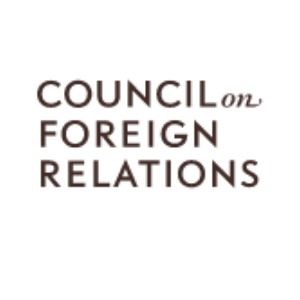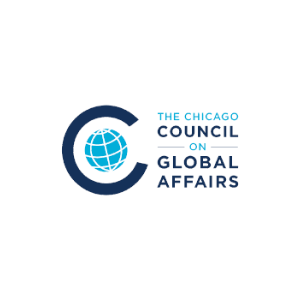
Migrants and mayors are the unsung heroes of COVID-19. Here’s why
In every crisis it is the poor, sick, disabled, homeless and displaced who suffer the most.

In every crisis it is the poor, sick, disabled, homeless and displaced who suffer the most.

The COVID-19 pandemic brought the world’s bustling cities to a screeching halt

Published in Project Syndicate By Robert Muggah This year’s annual IMF/World Bank spring meetings may be taking place virtually, but the challenges facing the world’s finance ministers and central-bank governors are frighteningly real. In particular, will multilateral efforts succeed in preventing the coronavirus from causing

Published in Foreign Policy By Robert Muggah The world is convulsed by the novel coronavirus, but that is not the only pathogen that afflicts us. Criminal violence is also endemic, contagious, and highly virulent. More than 464,000 people were killed in homicides in 2017 (the last

Published in The Humanitarian By Robert Muggah To understand more about the crisis confronting the urban poor, The New Humanitarian interviewed Robert Muggah, principal of The SecDev Group and co-founder of the Igarapé Institute, a think tank focused on urban innovation that has worked with the World Health Organisation to

As coronavirus gales across the Americas, officials from Mexico to Chile have puzzled over how to keep millions locked down at home

As coronavirus gales across the Americas, officials from Mexico to Chile have puzzled over how to keep millions locked down at home

Published in Financial Times By Robert Muggah With president Jair Bolsonaro dismissing the pandemic as “sniffles” and criticising regional lockdown measures, the country’s drug gangs and paramilitary groups have stepped in to enforce social distancing to combat the spread of coronavirus. “Whoever is caught on

Published in Bloomberg By Robert Muggah At midnight on March 17, Paraguay closed down the Friendship Bridge to Brazil. It was the first time in more than half a century that traffic stopped on the emblematic land link between the two South American neighbors, where

Published in Council on Foreign Relations By Louise Marie Hurel The February 20 Brazil-EU Cyber Dialogue signaled the most recent step taken by Brasília and Brussels to collaborate on advancing responsible state behavior in cyberspace. While there have sometimes been differences in the two

With COVID-19 infections now evident in 176 countries, the pandemic is the most significant threat to humanity since the second world war. Then, as now, confidence in international cooperation and institutions plumbed new lows.

Published in Financial Times By Robert Muggah With president Jair Bolsonaro dismissing the pandemic as “sniffles” and criticising regional lockdown measures, the country’s drug gangs and paramilitary groups have stepped in to enforce social distancing to combat the spread of coronavirus. “Whoever is caught on

Liliana was there when local men abducted her teenage friend on the outskirts of El Salvador’s capital, and she saw exactly who did it. But when police came to question her, she kept quiet.

Published in US Today By Robert Muggah A data analysis by USA TODAY finds that, two weeks after the U.S. first entered into community transmission on March 3, America’s trajectory is trending toward Italy’s, where circumstances are dire. U.S. officials are sounding the alarm, urging

Published in The Chicago Council By Robert Muggah As COVID-19 spreads around the world, non-resident senior fellow on global cities Robert Muggah shares his insights into the spread and impact of pandemics, why they are becoming more common, and how cities can help minimize threats

Published in World Economic Forum By Robbert Muggah When it comes to infectious disease outbreaks, cities are dual-edged. To be sure, cities are a big part of the problem. They intensify the spread and transmission of infectious disease through increased human contact. Today, roughly 4

Published in USA Today By Robbert Muggah The majority of global public health experts believe that countries need to act quickly and decisively to reduce what Robbert Muggah, a leading Brazil-based risk and security specialist, said “represents the most significant threat to population health and

Homicides in Brazil are projected to have fallen 16 percent in 2019 as compared to the previous year, although Latin America’s most populous nation still had more than 41,000 murders, the highest total number in the region

I study violence in Latin America, and I’ve observed a sharp increase in reports of religiously motivated crimes in Rio de Janeiro since 2016, in particular attacks on “terreiros” – the temples of the Candomblé and Umbanda faiths.

After years of procrastination, Brazil has finally adopted comprehensive data protection legislation. In mid-2018, the government approved Law 13.709, known by its Portuguese acronym, LGPD.

They came looking for gold. Earlier this year, several dozen unauthorized prospectors, or garimpeiros as they are known in Portuguese, invaded a 1.4 million acre indigenous reserve in Brazil’s remote northern state of Amapá.

We are facing a climate emergency. More than 11,000 of the world’s scientists and successive reports issued by the International Governmental Panel on Climate Change say the evidence of human-induced global warming is irrefutable.

The world is waking-up to the climate emergency. But our prolonged slumber is going to cost us dearly. The latest scientific findings indicate that our planet is approaching multiple “tipping points” that could cause irreversible and catastrophic changes in temperature, ecosystems and biodiversity.

Make no mistake: the world is in the early stages of a techno-war against city governments and urban infrastructure. And while some cities have bolstered their capabilities to patch their vulnerabilities, they are entirely unprepared for the scale of cyberthreats that are coming.

Brazil is the world’s murder capital. No other country even comes close. That is why it was big news when the country’s minister of justice recently announced that homicide rates fell by over 20 percent in 2019 compared to the same period last year.

Cities are stepping-up to confront many of the world’s biggest existential challenges – especially climate change. One reason is that cities have always been where the future happens first; spaces that cultivate creativity, resourcefulness and innovation.

n one of the world’s most fragile and violent settings, Lieut. Comdr. Marcia Braga, a 45-year-old Brazilian naval officer, arrived in April 2018 as the third military gender adviser for the United Nations peacekeeping mission in the Central African Republic.

News coverage the catastrophic impacts of global warming are everywhere. From the Arctic to Brazil, the house is clearly on fire.

RIO DE JANEIRO, Aug 13 2019 (IPS) – Every year, over 12,000 women are killed in Latin America. The region is plagued by extremely high levels of violence, and a vacuum of state power persists.

Sixty-two people are dead following a riot at a prison in northern Brazil earlier this week. Fifty-eight inmates were killed when a fight broke out between rival gangs at a prison in Altamira, in Para state, including 16 who were beheaded.

O Instituto Igarapé utiliza cookies e outras tecnologias semelhantes para melhorar a sua experiência, de acordo com a nossa Política de Privacidade e nossos Termos de Uso e, ao continuar navegando, você concorda com essas condições.

